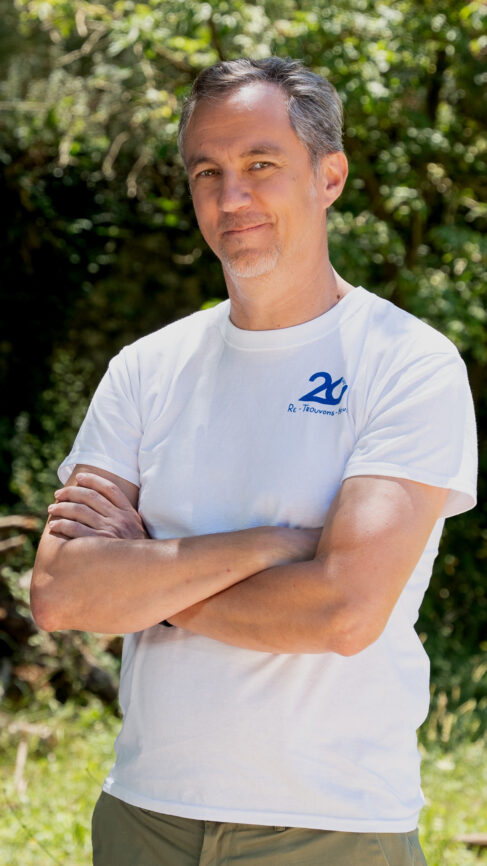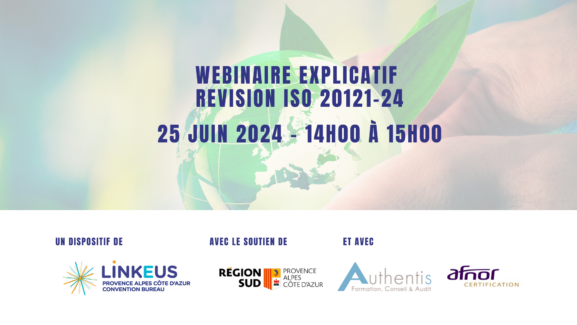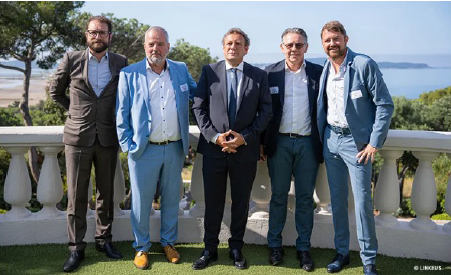Making business tourism more sustainable has become an obligation
Guest on Planète locale on June 17, 2024, the weekly program dedicated to the ecological transition in Provence and hosted by Gomet’ in partnership with BFM Marseille Provence.
In this interview, LINKEUS Managing Director Malika Bouldi talks about the sector’s ecological transition and LINKEUS’ action to help professionals move towards a more sustainable business.
How important is business tourism in our region?
We’re a very attractive region when it comes to hosting business events: seminars, conventions, trade shows, initiatives… We’re in second place, after Île-de-France, and we’re hot on the heels of the Auvergne-Rhône-Alpes region. We’re very good at hosting major business meetings in Marseille, Toulouse, Cannes and Nice, because we have three airports, expertise in hosting major international events, a growing hotel offer, technical service providers and venues that lend themselves to this type of hosting: The Parc Chanot, the Aix-en-Provence Convention Center, the Palais des papes in Avignon… We promote 17 destinations, and our organization’s objective is first and foremost to promote our events offering, to convince decision-makers to organize their business events in our region, but also to make it more virtuous.
Tourism pollutes, especially business tourism. According to Ademe, tourism accounts for 17% of greenhouse gas emissions. What are you doing to promote more eco-responsible business tourism?
M.B.: This approach to supporting sustainable development began during the Covid 19 crisis, which hit our companies hard. We realized that there was a major issue at stake, and our approach accelerated: we brought together professionals to reflect on an ethical and responsible charter based on eight axes, with the aim of informing, raising awareness, training and taking companies that have no certification or that have very committed policies in terms of environmental, social and economic responsibility along a path until we could offer them personalized certification support.
Released in 2021, the charter has been signed by around 80 companies in the Linkeus network. It has now become compulsory for all companies wishing to join our network: we now have 200 companies who have signed the charter and whose commitments have been honored. The process doesn’t end with the signing of the charter. We regularly ask companies to report on everything they’ve done in terms of CSR (corporate social responsibility), for example in terms of employee training or the procedures applicable to events.
In concrete terms, what can companies do to reduce their environmental impact?
M.B.: The challenge is to know how to achieve structured, responsible management during any event. For example, pollution can be reduced by encouraging participants to use public transport, to consume more efficiently and to manage their waste. It’s also often the flow of participants that generates waste. We can’t blame them: we’re an attractive region and we want to keep our position, but our aim is to help companies make their event more eco-responsible. It’s also essential to work on the wings of the season, i.e. to encourage companies to organize their business trips outside the most popular periods of the year, in order to spread the flow.
It’s even becoming an obligation to hold eco-responsible events, as was the case for the organization of the World Conservation Congress at the Parc Chanot in Marseille in 2021.
M.B.: Exactly, in response to the call for bids to host the World Conservation Congress in September 2021, Parc Chanot was required to comply with ISO 20121. This standard can be applied to convention centers like Chanot, but also to caterers, for example. For hotels, it’s more the Clef Verte label that’s in demand. These labels represent a global commitment to the eco-responsibility of an event.
What exactly is the ISO 20121 standard, and what are the concrete criteria for obtaining it?
M.B.: It’s an international standard introduced in 2012 by the ISO (International Organization for Standardization), which encompasses a whole series of measures to be deployed, which is why it’s quite difficult to obtain. It’s a process that lasts 18 months and starts with raising awareness among managers, then teams. It’s a highly personalized process to help a company engage not only its structure, but also its suppliers and customers, because it doesn’t work one without the other. If a company has ISO certification but neither its customers nor its suppliers are sensitive to eco-responsibility, it won’t work. These standards involve social, economic and, of course, environmental aspects, which are essential: waste management, short circuits, identification of virtuous suppliers, management of food leftovers.




